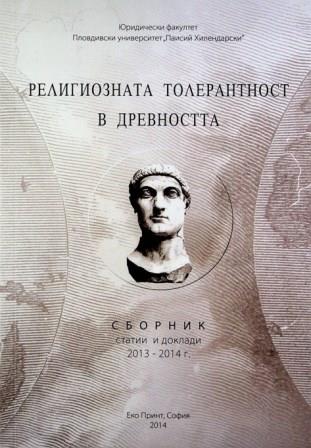Миланският едикт и религиозната свобода в законодателството на император Константин
The Edict of Milan and the Religious Freedom in the Legislation of Emperor Constantine
Author(s): Giogio Barone Adesi
Subject(s): Law, Constitution, Jurisprudence, Canon Law / Church Law, Roman law
Published by: Пловдивски университет »Паисий Хилендарски«
Keywords: edict of Milan; religious freedom; legislation; emperor Constantine
Summary/Abstract: The Byzantine church history and the Late Ancient Christian sources canonized Constantine as a symbol of the first Christian emperor, protector of all believers including all beyond the boundaries of the Roman Empire. In this relation the edict of Milan is officially introduced in the church sources as the Christian conceptual basis of the Constantine’s legislation.The article is dedicated to the disclosure of its true essence and the consequences for the Christian communities which are observed as property rights. Under consideration is the importance of the decision made by emperors Constantine and Lucinius in Milan, the necessity to recognize freedom of Christian community (secta) to practise its convictions regardless the ideological religious differences (religio) is emphasised as well as all other religions in the Empire. The decision not to put limits on religious plurality even within Christianity itself predetermined irrelevance of all legislative interference in ideological arguments which are the basis of division among Christians.It is accepted that the preserved text in the work of Lactantius and Eusebius which is referred to as the edict of Milan is in fact created in the offices of Licinius- rescript. The following constitutions of Constantine and the proconsular governor of Africa Anullinus in relation to the strengthening of the Catholic faith in these provinces are analysed.
Book: Религиозната толерантност в древността : Сборник статии и доклади 2013-2014
- Page Range: 39-45
- Page Count: 7
- Publication Year: 2014
- Language: Bulgarian
- Content File-PDF

